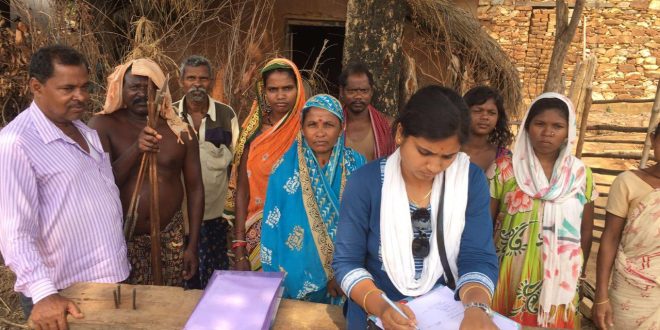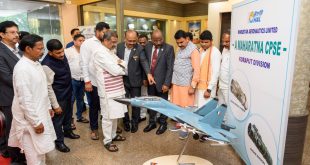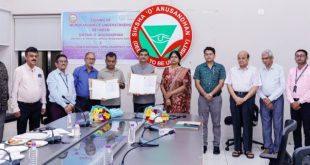Monitoring and evaluation are sine qua non to policymaking. M&E has involved specialists and experts to measure performances against certain pre-set parameters.
They follow conventional tools and procedures, which are well structured and tested over a period of time .
Poverty and Human Development Monitoring Agency (PHDMA), an agency of Government of Odisha, since last two years, has been focusing on a new-age monitoring and evaluation process that involves immersion and sustained engagement at grassroot stakeholders of policymaking.
The field-level cadres, who are known as frontline policy implementers, are engaged in monitoring and evaluating policies, schemes, projects or programmes by directly interacting with beneficiaries and concerned citizens.
This M&E process is termed as Participatory Monitoring and Evaluation (PM&E).
International agencies such as The World Bank that are practicing PM&E, define it as a process through which stakeholders at various levels engage in monitoring and evaluating a particular project, program or policy. These stakeholders share control over the content, the process and the result of the monitoring and evaluation activity. PM&E is unique and different from the conventional M&E in terms of engaging key stakeholders more actively in the process. These stakeholders mostly include the end users or beneficiaries of projects or schemes including both men and women at community or village level, intermediaries such as NGOs, private sector businesses involved in the project and the government staff at all level.
The major focus of PM&E is active engagement of primary stakeholders like PHDMA does by engaging an ensemble of field-level functionaries.
These stakeholders of PHDMA are known as “Voice of PHDMA” (VoP) or “PHDMA Ra Swara”. It has its voices in all the 6798 Panchayats in the state to capture the narratives of people in terms of their lived experiences which gives a different perspective to the M&E.
“I have been involved as a functionary who implements schemes at grassroot. After becoming a VOP, I have become a part of the monitoring and evaluation process. The process of listening to people’s lived experience with schemes and projects and telling these stories has given me a different perspective. I personally feel it’s a unique attempt by PHDMA,” said Sabyasachi Dansana, a field functionary from Sambalpur.
As per the core principles of PM&E, Phdma works as a facilitator for these stakeholders in terms of providing training and acquainting them with their roles, responsibilities and importance, so that they can monitor and evaluate on the fieldby utilising the agency’s practices. They have been educated about various tools of M&E, differentiating between human interest stories and testimonials through numerous orientation programmes at the district and block level using training materials prepared by sectoral experts.
“We had undergone a training, where we were trained about how to listen to people’s version and tell their stories without being influenced. I have sent some stories from the field to PHDMA as part of its monitoring and evaluation process. This is a totally different method of M&E,” described Namita Rani Ghosh, a grassroot functionary from Mayurbhanj
Here people are active participants in narrating their lived experiences, there is a certain power in story which goes beyond numbers and statistics .
They not only discuss about their problems but also their involvement brings out various instantaneous local solutions to their issues.
While monitoring and evaluation get participatory in nature, more importantly, the processes involved in PM&E helps in trust-building and builds commitment to implementing any recommended corrective actions.
These participatory processes bring out the feedbacks which could have never been possible in conventional method of information gathering. These extras is for policymakers to then reach out to the roots of many societal and community level issues, address them accordingly.
Over the last two years, PM&E has helped Phdma provide inputs to concerned departments and archive people’s stories to create a repository of more than 10,000 captures of beneficiaries in stories and frames .
 Update Odisha-Latest Odisha News I Breaking News Get latest news on Odisha, Govt. Jobs, OSSC, OPSC, Entertainment, Crime, Sports, and Education
Update Odisha-Latest Odisha News I Breaking News Get latest news on Odisha, Govt. Jobs, OSSC, OPSC, Entertainment, Crime, Sports, and Education



